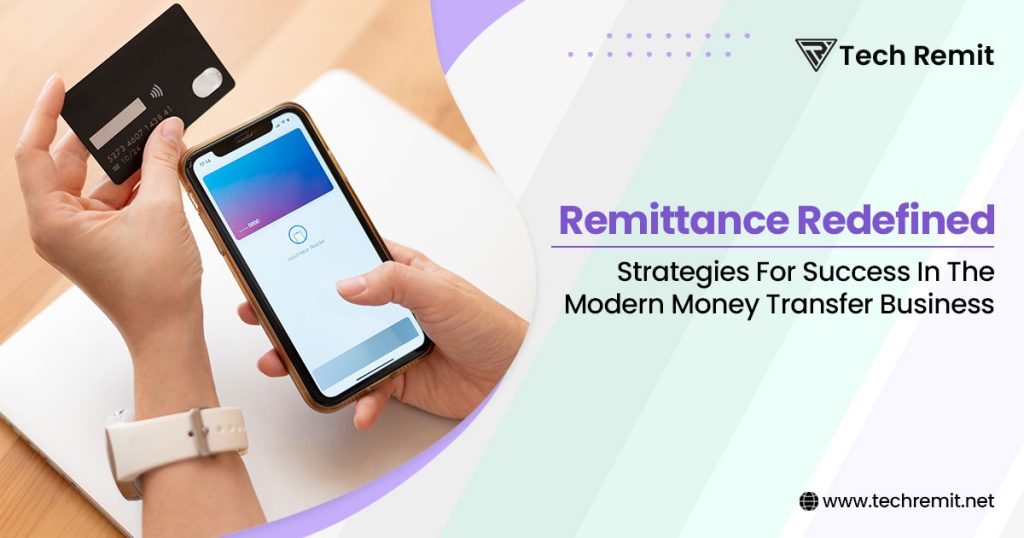Remittance Redefined: Strategies for Success in the Modern Money Transfer Business


The remittance market has evolved greatly in the past several years, with fintech and digital solutions enabling people to send and receive money from one country to another differently. The current traditional remittances are characterized by relatively high fees, slow transfers, and multiple players involved in the process. The advent of digital remittances facilitated by technology like blockchain and mobile apps has made the process quicker, cheaper, and more comfortable than before. This change has over time led to the phasing out of traditional remittance services. Fintech firms are using innovative technologies and business approaches that enable the delivery of faster, cheaper, and more inclusive global solutions for sending money.
Corporations operating in today’s money transfer market should aim to offer immediate, dependable, and affordable services, as well as pay attention to technology, customer friendliness of the interface, legal compliance requirements, and cooperation with other banks and tech firms. The modern money transfer business suffers from various challenges, such as competition with other digital platforms and the need to adjust as regulations change, but there are also opportunities for further growth as people increasingly turn to digital remittance services and the global economy becomes more interconnected.
This blog post will discuss the difficulties faced by traditional remittance services and how innovative approaches are transforming this industry.
The traditional remittance service providers face several difficulties, such as high charges, a long transaction period, and limited accessibility. Besides, operating through middlemen like banks and money transfer agencies usually leads to high rates. Migration also creates challenges in sending remittances since there is no payment mechanism used for remitting money in the refugees and asylum seekers’ countries.
These hurdles are considered to be solved with alternatives such as digital remittance Solutions, which provide faster, cheaper, and more convenient options for getting money transferred. Fintech services employ the latest technologies and business models, which not only offer an efficient solution in providing remittances faster, cheaper, and more conveniently but also save money for both senders and receivers of the funds, particularly those in impoverished nations where remittances form a significant part.
Digital remittance services use technology, including blockchain and mobile applications, to simplify the money transfer process. These platforms often have real-time transfers, lower fees, and an easier user experience than traditional methods. Digital remittances have gained popularity as a cheap, efficient, and convenient way to reach people in places where formal institutions of financial intermediation are scarce. The move towards digital remittance has been brought about by the need to facilitate faster and more convenient payment means, and having IT solutions available has contributed tremendously to this change.
Companies looking to succeed in the modern money transfer business need to concentrate on offering fast, efficient, and cheap services. Some essential strategies for success include using technology like blockchain and artificial intelligence to improve transaction speed and minimize costs.
Sending money to someone in another country can be expensive, take a long time, and involve several middleman . However, companies that use technology to improve this process can do better in the remittance market. Tech Remit software helps companies to enhance their abilities, seize opportunities, and grow in the digital world when it comes to sending money internationally.
Also Read : P2P Payment Revolution: The Future Of Payment Processing With Money Remittance Software
Fiction can be pleasing only when crafted for entertainment purposes! But when they come to important financial matters, myths and misconceptions can […]
For the past few years, finance and technology have been working collaboratively to leverage innovation not just to digitise existing operational systems […]
Remittance is much different from what people had to deal with a couple of decades back. From physically handing over the money, […]